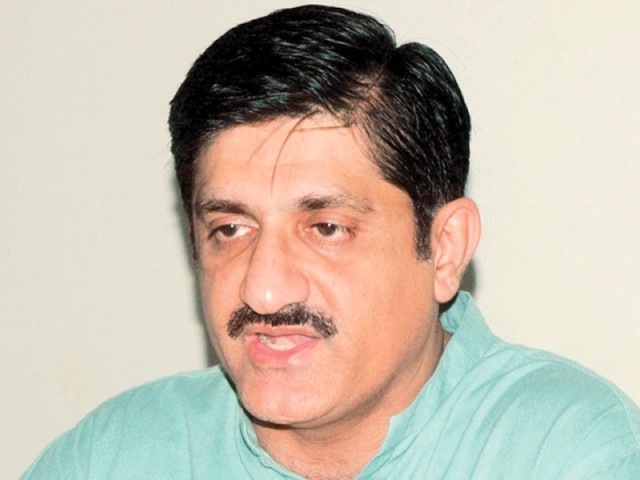KCR one step closer to completion under CPEC
CM says joint working group is a victory for the people of the city

CM Sindh Murad Ali Shah. PHOTO: Express
“This is the result of constant and sincere efforts of the provincial government,” he said. He said this while addressing a reception he hosted for CPEC’s joint working group on transport infrastructure at CM House on Saturday evening.
Shah said an important meeting of the joint working group was held on Saturday morning during which the three projects the Sindh government had proposed be included in CPEC were discussed. These are the KCR, Keti Bunder and special economic zone at Dhabeji. The meeting approved the projects and recommended them to CPEC’s joint coordination committee for implementation under the CPEC framework.
The chief minister said CPEC would help build a robust and stable economy in Sindh, as well as generate sound prospects for the province to revive and expand its road connectivity. “This will augment a new era of connectivity through which better fruits of economic benefits will be reaped by employment generation and a decent mode of transportation,” he said.
CPEC conference begins tomorrow
Shah said that a joint cooperation committee meeting was held in Beijing, China on December 29, 2016 in which he, along with a senior level delegation, participated. “We [the Sindh government] proposed the Karachi Circular Railway, Keti Bunder and special economic zone in Dhabeji be undertaken for implementation in CPEC, which were graciously included,” he told participants of the event.
The chief minister said that the Sindh government has approved the KCR’s feasibility and framework agreement and shared it with the federal government in order to meet the timeline to execute this mega project as soon as possible. “The KCR is an integral part of the comprehensive mass transit system envisaged for this megacity,” he said, adding that there was public demand for the KCR with ample ridership of 700,000 per day.
“Karachi is one of the most populated cities in the world and there will be ample returns on any investment made in the city in wider economic terms. These economic benefits include reduced vehicle operation costs and travel time costs,” he said.
“We understand that a comprehensive mass transit system is the only solution to address the bourgeoning population of this megacity,” said Shah, adding that the Sindh government has therefore started working on various bus rapid transit projects, which complement the KCR and aim to reduce the misery of commuters in Karachi. He went on to say that investors were therefore invited to invest in the KCR and other mass transit systems being developed in Sindh.
‘CPEC changing country’s destiny’
Shah said that Sindh’s coastline is more than 300 kilometres-long. It has two ports in Karachi and Bin Qasimn, he said, adding that a new jetty in Keti Bunder would enhance the county’s capability to export coal with a potential to develop it as a full port. “Five million people living in the surrounding areas would also directly benefit from the project,” he said.
Talking about the special economic zone, the chief minister said Sindh has already established a few special economic zones, like those in Bin Qasim Industrial Park, Korangi Creek Industrial Park and Khairpur Special Economic Zone. He added that Dhabeji stretches over 1,000 acres of land and is about 55km from Karachi. “It has commercial viability and development potential in immediate terms,” he said, adding that with the advent of the manufacturing agro-based industry, it was believed that this economic zone would usher in prosperity for the growers of the province, coupled with a substantial increase in the production sector.
Shah said CPEC would prove to be a milestone in the history of Pakistan-China relations, which would not only bring extensive development opportunities to the country, but also bring development in underdeveloped areas of the country.



















COMMENTS
Comments are moderated and generally will be posted if they are on-topic and not abusive.
For more information, please see our Comments FAQ